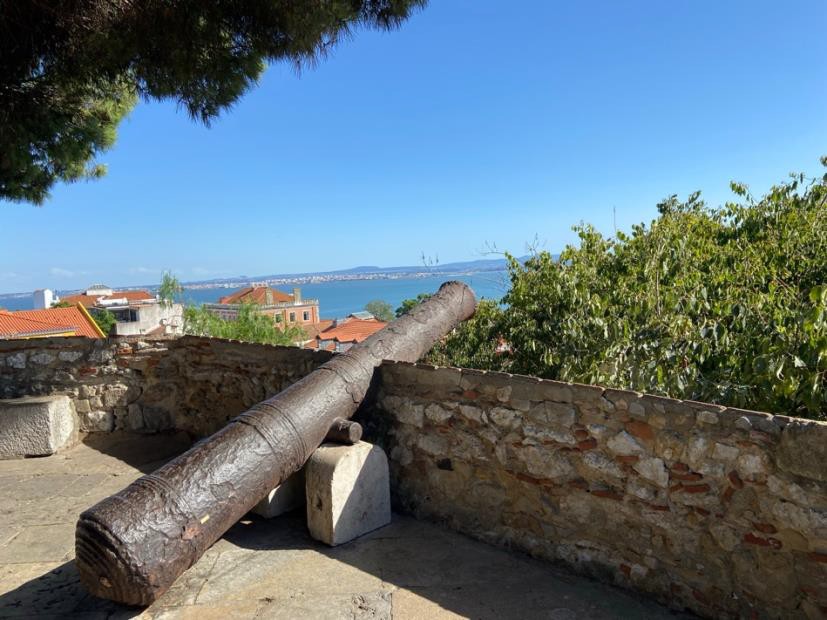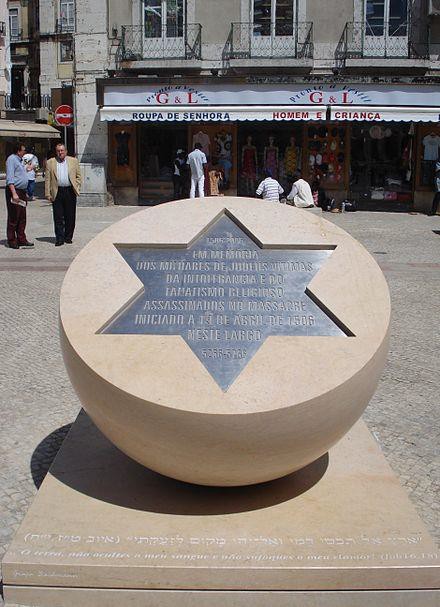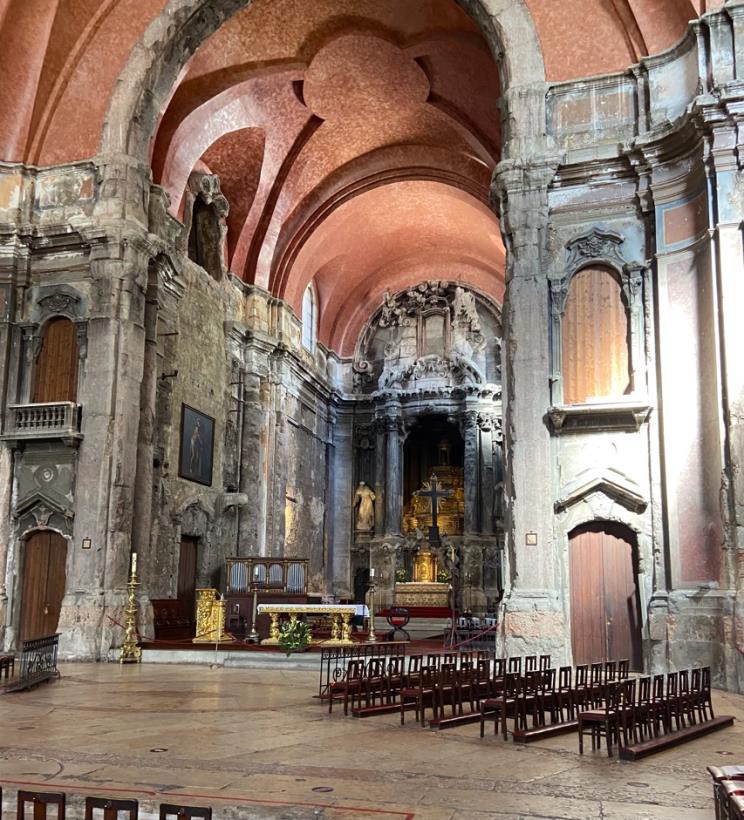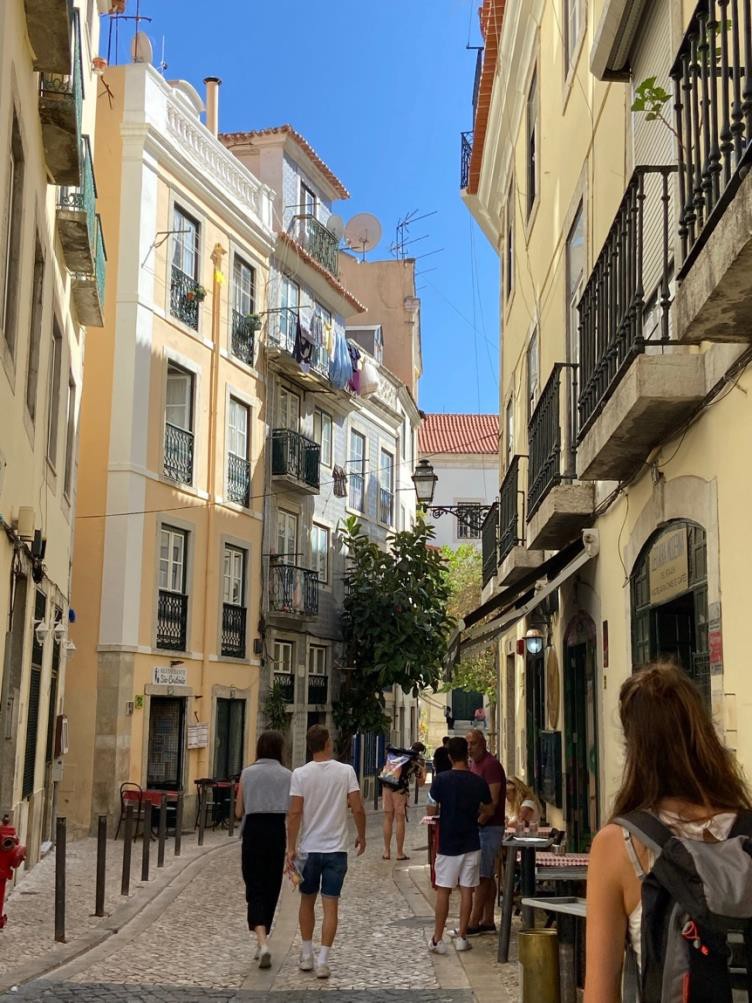Bom Dia from one of the oldest cities in the Mediterranean.
Lisbon, situated on the Tagus River and a short distance from the Atlantic was recognized as an excellent port city by the Phoenicians, the Carthaginians, the Greeks and the Romans. 500 years of Roman rule ended with invaders from the north, first the Suebi, Germanic tribes from the Elbe, then the Visigoths.
 The Moors arrived in the early 8th century and stayed for 500 years until they were expelled by the first Portuguese king. The fates smiled on the soon to be king, when crusaders, on the way to Jerusalem were blown off course and took shelter in Oporto. Alfonso, a Burgundian count who led the Christian resistance, enlisted their support in fighting the local Moors. The crusaders were promised land, titles and pillaging privileges.
The Moors arrived in the early 8th century and stayed for 500 years until they were expelled by the first Portuguese king. The fates smiled on the soon to be king, when crusaders, on the way to Jerusalem were blown off course and took shelter in Oporto. Alfonso, a Burgundian count who led the Christian resistance, enlisted their support in fighting the local Moors. The crusaders were promised land, titles and pillaging privileges.
Lisbon was under siege and after 17 weeks, in October 1147, they surrendered. The moors were eventually beaten back to Africa and Portugal, with the approval of the papacy, was a kingdom.
The Moorish influence provided the Portuguese with an advantage. The Arabs had introduced astronomy, cartography and navigation, via the astrolabe and the compass. Portugal in the age of discovery would boast the most audacious explorers and some of the wealthiest possessions in Asia, Africa and South America.
By the 1700’s, it was said that the Portuguese king, Joseph I, had more gold than all the princes of Europe. The riches were squandered on elaborate palaces, churches and monasteries. The people were poor and uneducated.
Portugal had also systemically emptied the country of its intellectuals and merchant class. In 1496, King Manuel promised to expel the jews as a condition for his betrothal to the Spanish princess.
Many Jews left Portugal, but others stayed, changed their surnames and adopted catholic rituals, frequently while continuing to practice Judaism in private. These former jews were called New Christians.

On Easter Day, 1506, an incident at St. Dominics church in Lisbon sparked a brutal 3 day pogrom that killed thousands of new Christians and extended to individuals suspected of heresy or unchristian attitudes. In 1536, the creation of the Holy Office of the Inquisition attacked and destroyed anyone deemed a threat to the Roman Catholic orthodoxy or the crown. The primary target being new Christians but soon the ministry expanded its scope to include all aspects of Portuguese life. Different ideas weren’t tolerated.
Despite or because of the pogroms and the Inquisition, Portugal had the holiest of Kings and had been blessed by God with riches from the slave trade and from slave labor in their foreign mines and plantations.

What could go wrong?
At 9:15 AM on All Saints Day, November 1st, 1755, while the pious and god-fearing were attending Mass, an earthquake of greater than 9.0 magnitude rocked the city. The initial tremors lasted three minutes, there was a respite, than another tremor shook and destroyed the remaining structures. Frightened survivors fled to the banks of the Tagus where a miracle occurred. The water level was so low that people were attempting to cross the waterway, then the tsunami hit. In Lisbon, the wall of water was over 30 ft high.
Thousands who had survived the quake were drowned.
Then came the fires. On All Saints Day, candles are lit to honor the dead. The candles in the wreckage of the churches fueled a blaze that was fanned by strong winds. The city burned for five days.
Remarkably, the district where the non Christians and the prostitutes lived was relatively unscathed.

The Great Earthquake is considered the birth of seismology, fueled the debate on optimism, and ushered in disaster tourism. Yes, even in though it was only 1755, people were willing to take a boat to Lisbon to see the horrific damage.
Lisbon rose from the ashes thanks to an enlightened despot, a counselor to King Joseph, the Marquis de Pombal. During his tenure, a city plan was developed, slavery in Portugal was banned, the Jesuits were expelled, education was expanded and liberalized and merchants and intellectuals were enticed to return.
Stay tuned for Lisbon, Day 2 – where you’ll learn about the fate of Lisbon and the Marquis. And finally hear about Lisbon today.
If you’re interested in reading more about the Great Quake, The Last Day: Wrath, Ruin and Reason in the Great Lisbon Earthquake of 1755 by Nicolas Shrady is a good read.